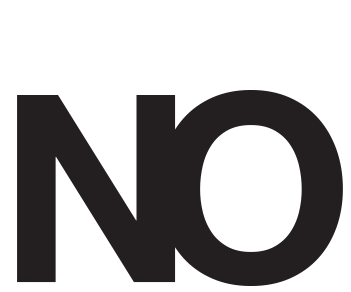Art
No Order Magazine talks with the artist.
I’m Mim Libro, I’m an artist living in Brunswick, Melbourne.
How did your career begin?
I moved to Melbourne (Naarm) when I was 19 to study film and television production. I came from a background in screen acting. While I was doing the course, I realised I was spending most of my time in class just drawing, which started to feel a bit counterproductive. Around that time, a friend asked me to curate art for a few music events he was running. I eventually started making my own work to include in those shows, and from there I began dedicating more time to creating art. It gradually took over everything else I was doing, and things just snowballed from there.
Do you have a set process when it comes to making work?
I don’t have a set process at all. I really like working in the moment and making things based on how I’m feeling. Some days I need a lot of time to set myself up or think, and other days it just pours out of me. The only consistent thing is that I wouldn’t consider myself much of a planner. I prefer to go with the flow and see where it leads.
What does art mean to you, and is it personal?
Art is a form of expression. It captures a feeling in a moment. It’s personal in the way it’s interpreted. I think it’s rare for a group of people to all have the exact same reaction to a piece of art. Everyone brings their own experience to it and creates their own meaning, which is what makes it so interesting.
How did you get into airbrushing?
In about 2021, I was into making clothes and had started getting into screen printing. At the time, I was lucky to have access to screen printing equipment and was making garments at a friend's studio. There was an airbrush machine there, so I gave it a go. I found it pretty challenging at first, but once I got the hang of it, I became obsessed. I loved the speed, the flow and feel of it.
What are some of the biggest influences on your art and practice?
I’d say my biggest influence is what I’m experiencing in my own world, whether it’s something I’ve gone through or am currently going through. I also take a lot of motifs from literature, spirituality and film. There are definitely artists who inspire me and make me excited to be an artist, but the main influence comes from within and from what’s happening in my life at the time I’m making the work.
Have there been any significant life experiences that changed how you approach creativity?
When I first started making art, I was working in bars and partying pretty heavily, but I wasn’t in the right state of mind to create. I had to make a lot of bad decisions during that time to realise it wasn’t a healthy way to exist, and that I couldn’t make work that felt real to me in that state. After making some changes in my life, I was finally able to create work that felt more authentic and true to what I really wanted to express.
Image Credit: Liv Bridge.
How do you go about working with clients and interacting with galleries?
It really depends on the person, but I feel really lucky. Almost everyone I’ve worked with has been great. There’s been a strong sense of mutual respect in most of the relationships I’ve had. I think part of that is because I’m quite selective about who I work with. If something doesn’t feel right or I’m not comfortable with it, I simply won’t do it.
What’s something you wish you knew at the beginning of your career that you know now?
There are lots of little things, but honestly I think it’s good to go in a bit blind and learn as you go. It’s the best way to figure out your own rhythm and what works for you. I’ve had so many moments where I’ve thought, “I’ll never do that again,” but if those things hadn’t happened, I wouldn’t have found a way of working that really suits me. Even the difficult experiences helped shape my practice, so I don’t think I’d change anything.
What advice do you have for emerging artists?
Don’t compromise when it comes to communicating your authenticity, and stay true to yourself. It’s critical to create work that feels genuine to you. Even though it can be really challenging, especially because the idea of an audience and their response naturally tends to linger in our minds, the most meaningful work you’ll ever make is the kind that truly comes from you and is made for you.
Read the full interview in Issue 04
Published: 18th July 2025
